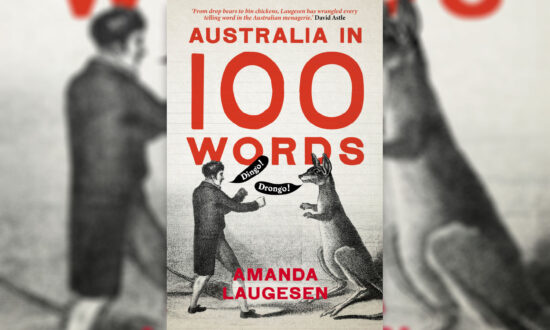In Paul Kennedy’s first memoir, the veteran journalist, sports presenter and footballer takes us back to early-‘90s Australian suburbia, recounting his final year of high school in the outer Melbourne area of Frankston, whose nickname gives the work its title. Funkytown begins in January 1993, with “a streak of summer sun” creeping into Kennedy’s teenage bedroom and one clear goal in mind. “More than anything,” he writes, “I wanted to play football under lights at the Melbourne Cricket Ground.”
What follows is an honest, blow-by-blow account of how that dream proved both a driving force and source of disappointment, the mixed emotions and experiences of adolescent masculinity delivering highs, lows, self-destructive habits and the discovery of adjacent passions – writing itself and the power of telling (like the author Margaret Craven, a formative influence) “wise stories”.
 This helps makes sense of Kennedy’s laudably mixed career history, too. Along with sports journalism and writing on various aspects of Australian sporting history, he has also investigated the issue of child abuse and subsequent cover-ups by the Catholic Church. His co-authored work with Chrissie Foster, Hell on the Way to Heaven, helped finally prompt a royal commission into that most egregious example of institutional authority wielded to protect power at the expense of society’s most vulnerable.
This helps makes sense of Kennedy’s laudably mixed career history, too. Along with sports journalism and writing on various aspects of Australian sporting history, he has also investigated the issue of child abuse and subsequent cover-ups by the Catholic Church. His co-authored work with Chrissie Foster, Hell on the Way to Heaven, helped finally prompt a royal commission into that most egregious example of institutional authority wielded to protect power at the expense of society’s most vulnerable.
Kennedy seems to have a genuine, abiding passion not just for the communal power of sport, but for the significance of local community as a whole. His recollections are filled with heartfelt, generous highlights of those friends, coaches and teachers whose influence, sometimes hard-to-hear advice, or simple presence he credits with shaping the best parts of who he has become.
While the narrative is necessarily personal, there are reflections throughout on broader cultural issues and questions, memories held up and examined in the light of not just individual growth, but social change and the realisation of inequities too long taken for granted. Of the Frankston murders, for example, which cast a shadow of fear over the suburb that winter, Kennedy writes that the person responsible “was killing girls and women, not boys and men. My relative safety, given I was male, brought me a sense of relief, guilt and helplessness”.

Get InReview in your inbox – free each Saturday. Local arts and culture – covered.
Thanks for signing up to the InReview newsletter.
More than anything, Kennedy vividly captures a sense of time and place with straightforward, diaristic prose that makes frequent reference to nostalgically familiar pop cultural staples. From asking his mum for a Maverick-style Top Gun haircut, listening to Marc Cohn’s “Walking in Memphis” or bands like Spin Doctors and The Proclaimers on his Walkman, to being moved by the story of troubled English teacher and footballer Tom Wingo in Prince of Tides, every reference he deploys has both vivid provenance and immediately recognisable relevance for the broader story he is seeking to tell. The story of a young man infused with sensitivity in a structure that only sometimes allowed for it. Of a local boy made good, despite the twists-and-turns, because of the people around him. Ultimately, it is a welcome story about the ongoing significance of community.
Funkytown, by Paul Kennedy, is published by Affirm Press and released this week.
Support local arts journalism
Your support will help us continue the important work of InReview in publishing free professional journalism that celebrates, interrogates and amplifies arts and culture in South Australia.
Donate Here




